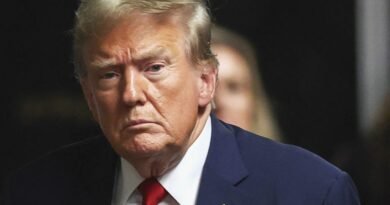Columbia University informs students: The school’s promises are not binding

Columbia University administrators appeared ready to confront ongoing student protests Monday, but ultimately backed down in the face of student activists.
Earlier today, school president Minouche Shafik firmly announced on the school’s website that Columbia would not be divesting its endowment from Israel.
“The university will not divest from Israel,” Shafik declared, while noting that negotiations with student protesters who had been occupying the campus since April 17 had failed.
Taking action, Shafik set a new 2 p.m. deadline for the occupiers to vacate the “liberated zone” and dismantle the camp.
However, the student protesters, faced with suspension if they did not leave on time, expressed doubts about the administration’s resolve, given the previous missed eviction deadlines.
During the morning and early afternoon, there was little activity in the camp, with supplies and food laid out for the campers.
Around 1:30, the campers formed a picket line and began chanting as they marched around the area.
Faculty members, wearing vests that said “Faculty,” gathered to monitor the situation near the camp entrances.
As the 2 p.m. deadline approached, a student organizer on a megaphone declared that the campers would not budge unless by force.
This was a pivotal moment for Columbia’s leadership to enforce school policies and clear the encampment.
However, 2 p.m. came and went without any action being taken.
Campus security remained mostly out of sight, and the NYPD was reportedly on standby but did not have a presence on campus without authorization from the university.
As a result, students continued to march past 2 p.m. with their faces covered.
One protester shouted, “Shafik has blood on her hands,” as the university president remained unseen.
Students chanted “Globalize the intifada” and other slogans as they continued their protest.
As the day progressed, the crowd outside the campus gates grew rowdier, creating a chaotic scene.
The campus atmosphere deteriorated as unshowered students and food left in the sun added to the discord.
The protests continued until around 4 p.m., with students gradually dispersing under the heat of the sun.
By evening, the university began to suspend students who refused to leave, restricting their campus access.
Columbia’s indecision and attempts to please both sides have only exacerbated the situation.
The only decisive action Shafik took was to clear the first encampment two Thursdays ago, but then allowed it to be reestablished without intervention.
Promises were broken and deadlines were missed repeatedly.
Other universities like Princeton have managed similar situations more effectively, promptly removing protesters who set up camp.
University leadership should enforce rules consistently and transparently, which has not been the case at Columbia.
Angry and emboldened students now see that the school does not hold true to its commitments.



